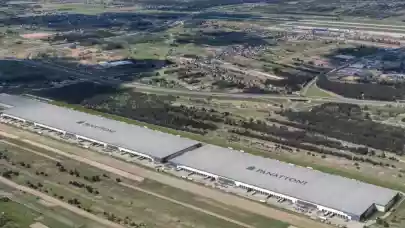
Romania is the fifth most attractive manufacturing market in Europe and was ranked 12th globally, according to the Manufacturing Risk Index 2019 study, conducted by the Cushman & Wakefield.
Cushman & Wakefield analyzed 48 countries from the EMEA, America and Asia-Pacific regions, using 20 criteria that take into account the market conditions, costs and risks, with Romania being highly competitive in terms of costs and market conditions.
Thus, at European level, the Romanian production market is only surpassed by the ones in the Czech Republic, Poland, Lithuania and Hungary, while the world's most attractive industrial markets are China, United States, Taiwan, India and Canada.
In a ranking that gives higher importance to costs (60% versus 40% in the baseline scenario), Romania ranks second, after Lithuania. In contrast, in the scenario where the risk share is up to 60% (compared to 20% in the baseline scenario), Romania ranks 16th in Europe.
Rodica Târcavu, Partner, Industrial Agency, Cushman & Wakefield Echinox: “As transportation accounts for 50% of the current logistic cost for a product to get from the producer to the final recipient, effective time-saving and delivery costs solutions are taken into consideration. Thus, new global transportation hubs are created, and Romania is proposed to be part of the “Silk Road by Sea CEE” corridor by 2025, an extensive route that goes from China to Europe by sea. Such projects will increase Romania's attractiveness as a gateway entrance to Europe, having a direct impact on the development of the logistics and industrial markets.ˮ
With a level of headline rents for industrial and logistic spaces between €3.6 and €4.1 / sqm / month, Romania is one of the most competitive markets at the European level, while the salary level, calculated by Eurostat at €6.9 / hour is 75% below the EU average (€27.4 / hour).
Currently, the most important changes in the local industrial market are related to the availability of labour force and the tendency to automatize existing or underdevelopment deposits. Investors and end-users are aiming to open up or expand their production capacities in cities where they have access to a wider and more skilled workforce and where they can develop in the long run. The projects are thoroughly analyzed according to future production plans, which often go beyond the country's service area, with large volumes of these activities being sent for export towards Europe and on other continents.
Cushman & Wakefield consultants believe that global production has entered a stage marked by the influence of technology and innovation both in regards to the manufacturing process and to the logistics chain. Elements such as nationalism and protectionism, embodied by Brexit, or by the trade war between China and the United States, can significantly influence global commodity flows, while countries investing in infrastructure platforms that facilitate the movement of goods to and from the production lines will still to occupy the first positions in the attractiveness rankings.



